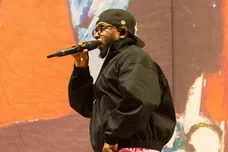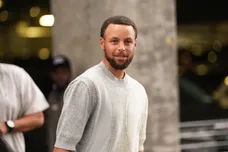A few years back, Complex published an editorial piece on Nas that ever so facetiously accused him of ruining hip-hop. The perfect viral title, the perfect exalted rap legend, the article’s major premise is that Illmatic is behind the “overall decline in the cohesion and quality of rap albums” because its success and acclaim led pretty much everyone to imitate it’s multiple-producer model.
Setting aside the gripes of so-called purists, and dreamers forever living in hip-hop’s “golden age,” the prevailing attitude on production is an interesting topic to ponder. Consider that Post Malone’s number-one hit could come from a sophomore biology major who had zero knowledge of the album it would end up on. Or that even control freaks like Kanye West don’t touch every second of every beat (Consider even further that Kanye and Drake have introduced a curatorial touch to hip-hop, where they pull from everyone and everything). The days of He’s the DJ, I'm the Rapper are far in the past, and we've so come to expect multiple producers that now it makes for headlines and Twitter notifications when a project is handled by just one.
So with the status quo so certain, and such an absolute turnover brought by Illmatic, why has this moment begun to show shades of those earlier days? One phenomenon the Complex piece touched on was the “superproducer,” someone so hot every rapper is asking for a beat from (regardless of stylistic compatibility). And it seems each year brings a fresh, young kid to be that. They disseminate their work, saturate the radio, and then disappear. Except, maybe there’s potential for something else— consolidation, bringing a longer lasting regime. Superproducer has become “executive producer,” in turn, has become musician in one's own right. Right now, all eyes are on Metro Boomin, who seems to have found a sweet spot between cutting loose singles and building lasting relationships with his favorite artists. We had Savage Mode. We had Without Warning. Not exactly standalone producer jobs, but they show us that the landscape isn’t locked in, or set on some irreversible path to hyper-diverse, cherry picked beats.
With all this in mind, we have compiled a list of some of our favorite single-producer albums. This is more about duos, the rapper and the producer as separate entities, so we cut anyone who produced for their own project (sorry, Dr. Dre). Not all your favorite classics are on here, but if do some research and you’ll find out why.
Presented in chronological order.
Erik B. & Rakim - Paid in Full (1987)

A duo of incomparable clout, Erik B. and Rakim are the artists who come to mind when you talk about a DJ and rapper who function as a unit. This sample-heavy album introduced a new approach to production, while Rakim’s complex rhyme schemes raised the bar on lyricism. Not all these cuts are classics, some are experimental or abrasive in a way that is only concerned with tossing a smirk, but even so this remains a landmark album.
Wu-Tang Clan - Enter the Wu-Tang (36 Chambers) (1993)

Before hip-hop became the quintessential collaborative artform, there was the Wu-Tang Clan. With nine voices, it makes sense that only one producer could pull together so many disparate threads. This project needed a guiding vision, because it was brimming with too much talent and genius. Luckily, they had RZA.
Raekwon - Only Built 4 Cuban Linx... (1995)

Yep, another RZA-led project. Maybe he’s getting too much acknowledgement, but the fact is that for three years straight he single-handedly helmed production on some of hip-hop’s greatest albums and helped lay the foundation for a whole region’s musical revolution. Building on Wu-Tang’s love of narrative, Raekwon’s solo debut reintroduced mafioso rap, a style that Jay-Z and Biggie would later adopt, and pushed the boundary on concept albums in hip-hop.
GZA - Liquid Swords (1995)

No Wu-Tang project is this damn perfect. Liquid Swords confirmed what we already knew, that RZA was a wizard in the studio, and that GZA, Genius of the Wu-Tang Clan, was a lyricist and storyteller without equal. It's dark production and lyrics painted a twisting, surreal underworld to New York’s mean streets.
Juvenile - 400 Degreez (1998)

Say "Cash Money," and people immediately think of Lil Wayne. But back when he was still a pipsqueak member of Hot Boys, Juvenile and Mannie Fresh were doing the heavy-lifting. 400 Degreez is Cash Money’s highest selling record of all time. It brought their label the attention of Universal Records, and brought Birdman the respect he so violently craves. There’s no big influential track, no classic-worthy analysis— this is just a fun ass album.
MF Doom & Madlib - Madvillainy (2004)

An underground, not-so-underground gem. MF Doom and Madlib are weird and brilliant on their first collaborative album. Madvillainy samples from just about everywhere and arranges a tilted, but vaguely familiar world, the perfect beats for Doom’s lyrical waxings and manic contortions of language. If you’re looking to have a weird afternoon and get a taste of one of hip hop’s most literary albums, give this a play.
Killer Mike - R.A.P. Music (2012)

Before R.A.P Music, you had to squint to notice Killer Mike slouching across the Southern rap scene. A Dungeon Family member with a sharp wit and keen political insight, he snuck onto a Grammy-winning Outkast song in 2001 and then seemed to fade out of the scene. In actuality, those intervening years were spent attacking pretenders and breaking down institutions of oppression. But it was this fateful pairing with El-P that brought Killer Mike to the mainstream. He attacked Ronald Reagan, fake-ass rappers, and brought his people “the opposite of bullshit” in a campaign of attrition— one that was only the start. We can thank this album for bringing us the last four years of Run the Jewels.
Freddie Gibbs & Madlib - Piñata (2014)

Piñata is a testament to Freddie Gibbs’ and Madlib’s sheer artistic ability. Knowing your niche is one way to do things, but it’s always impressive to see an artist thrive in an alien environment. With Madlib’s production playing like a gentle ebb, Gibbs digs deeper into his past and psyche.
Royce Da 5'9" & DJ Premier - PRhyme (2014)

If Erik B. and Rakim have modern counterparts, they are DJ Premier and Royce Da 5’9”. Except the guys that compose PRhyme are a lot more attuned to hip-hop’s trends, and they’ve each clocked in the hours to prove it. It’s almost weird to speak of them as a duo, when their age difference and independent projects mean they were established greats before even meeting. And yet, their self-titled debut plays like classic after classic, like the work of two people who have spent their whole lives learning and creating together.
Future & Zaytoven - Beast Mode (2015)

Even after he dropped Monster, no one was predicting a Future comeback (rather, a Future takeover). Beast Mode was the aftershock that served as a warning. With Esco in jail, Future turned to Zaytoven to handle this mixtape’s entire production. It was an interesting turn, from trap snares to piano arpeggios, and showed us a Future softer around the edges but just as committed to bangers and lean.
Honorable Mentions

We would be remiss not to mention these albums, however, they don't make the final list due to our criteria. These mostly-one-producer albums have one or two songs by another producer, or, if you dig deep enough, a contentious production history. What's your favorite from this bunch?
- Little Brother - The Listening
- Kanye West - College Dropout
- Snoop Dogg - Doggystyle
- Common - Be
- Dr. Dre - The Chronic
- 21 Savage - Savage Mode







